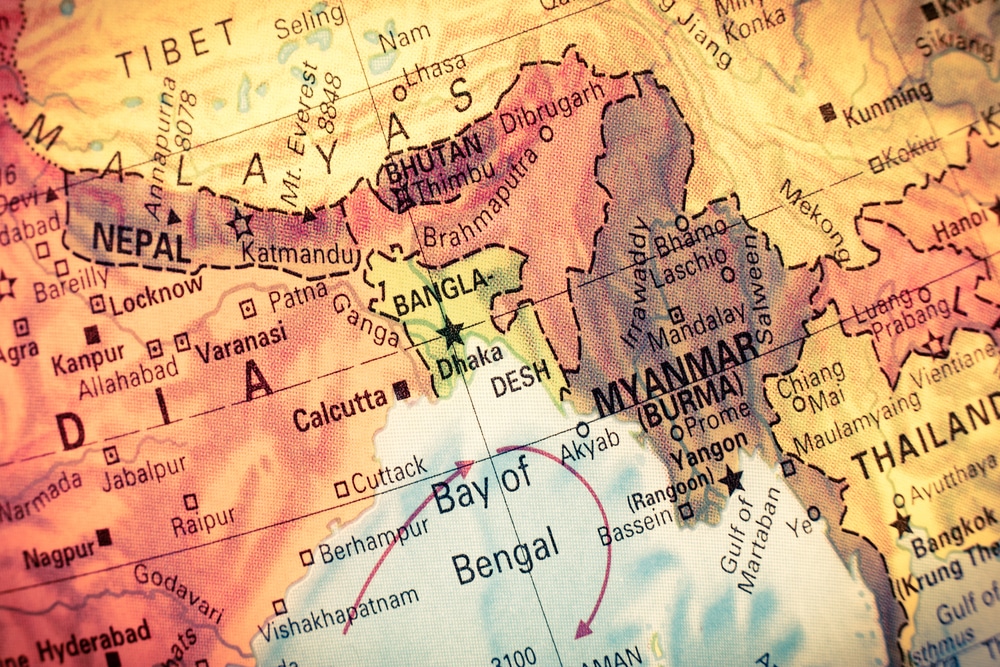In early November, Myanmar popped into the periphery of the corporate press, as a coalition of rebel ethnic paramilitary forces began overrunning military outposts and towns in the country’s north and west. With a series of coordinated rebel offenses continuing, two weeks later came reports that neighboring China was mobilizing for military drills along its lengthy, densely jungled border with Myanmar. Reports of continued fighting and of the millions that have already been displaced continued in the ensuing weeks, while CNN gleefully proclaimed the Beijing-allied military junta in Naypyidaw was “facing the biggest threat to its hold on power” and cheered the “beginning of the end” for the generals who had overturned civilian rule in 2021, ending Myanmar’s brief (and limited) experiment in democracy.
Finally, at the start of last week, word came across the wire that Beijing was going to step in and mediate between the military government in the capital and the rebel alliance of the Myanmar National Democratic Alliance Army (MNDAA), Ta’ang National Liberation Army (TNLA), and the Arakan Army (AA). Whether this intervention by Beijing will prove effective is as yet unclear, but given that its own southern provinces contain minority populations of the same ethnic stock as those across the border in Myanmar, Beijing has every interest in committing whatever diplomatic capital is necessary to calm things down—doubly so, as the northern provinces of the country in question are also home to the oil and gas pipelines that supply China.
With Washington approaching manic levels of paranoia about China, one wouldn’t be surprised if the CIA were somehow involved in trying to stir up trouble for one of Beijing’s only outright allies in the region. Washington welcomed the electoral triumph of dissident Aung San Suu Kyi’s National League for Democracy (NLD) in 2012 and 2015 and has refused to recognize the new (old) coup government. And as the Snowden leak and Wikileaks cables over a decade ago showed, Washington had secretly backed groups seeking to undermine a dam project in Myanmar viewed as benefitting China, as well as converted the U.S. embassy in the country into a joint listening outpost for the CIA and NSA.
While it is easy to imagine, and the prior military regime previously accused the CIA back in 2007 of helping assassinate a rebel Karen leader in the eastern Kayin State who was claimed to have wanted to reconcile with the regime, it frankly seems more likely that if anyone’s intelligence services or other assets are stirring up trouble in the country it is Beijing’s. Not directly, of course; but Beijing’s support for the regime, easy access to whose material resources Beijing desires, is complicated by its material and political support for certain of the ethnic militias, such as the United Wa State Army (UWSA) in Myanmar’s northeastern Shan State. Though the Maoist United Wa State Party (UWSP) have so far maintained the neutrality of its autonomously governed zone during this most recent flare up of violence, it remains one of the largest suppliers of arms to the other ethnic armed forces.
Despite this influence—enough to credibly serve as a broker between the two sides—any such quiet in the country is likely to be temporary. Indeed, the fighting continues. And even if Beijing is able to apply enough pressure to temporarily stop the fighting, many of the dozen or so ethnic and ideological militias that populate the difficult to penetrate peripheral reaches of Myanmar have existed for decades, and the claim that more democracy by a future government will lead to decentralization and a peaceable federalized Myanmar is hard to take seriously.
It is clear, however, that many in the U.S. State Department continue to delude themselves about Myanmar’s democrats, apologizing away Aung San Suu Kyi and her fellow democrats doing nothing while the military ethnically cleansed the Muslim Rohingya of the country’s western Rakhine State. To read its press statements, one could be forgiven for believing that a return to democracy is all that is needed to set things right in Myanmar. But this is wrong. Apart from conveniently ignoring that the newly democratized Burmese majority seemed frankly indifferent to what its army was doing (ethnically cleansing a troublesome minority group), it also ignores that the brief NLD government got along just fine with Beijing.
And this probably gets at the truth of the matter. Because whether they are in the habit of committing genocide or curbing the political rights of its population, Washington has no problem with any regime so long as they toe Washington’s preferred line; and because Washington has basically no chance of flipping Myanmar and using it against China it can, in the words of Sebastian Strangio, afford to “stand on its principles” in Myanmar.
And so sanctions will remain in place, even be periodically increased: because in the comfortable, consequence-free world of federal government work no policy has been tried and failed too many times to try it again.

































